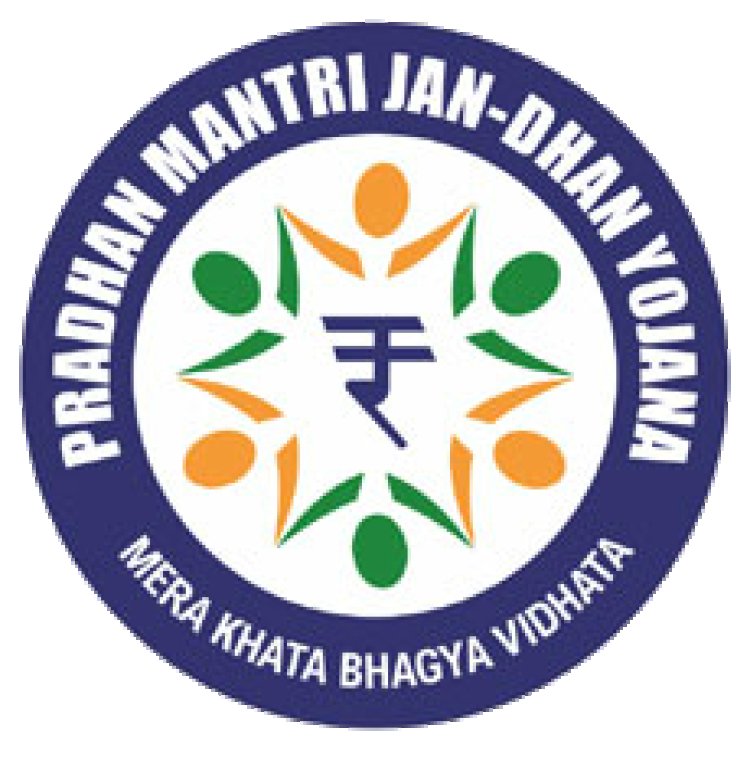Empowering Financial Inclusion: Pradhan Mantri Jan Dhan Yojana
In a world where access to financial services is a crucial factor in determining one's economic well-being and social progress

Pradhan Mantri Jan Dhan Yojana (PMJDY) play a pivotal role. Launched in August 2014 by the Government of India, PMJDY is a comprehensive financial inclusion program aimed at providing banking services to every household, regardless of their socio-economic status. This visionary scheme has not only brought millions of Indians into the formal financial sector but has also contributed significantly to the country's economic growth and development.

Objectives of PMJDY
-
Universal Access to Banking Services: The primary goal of PMJDY is to ensure that every Indian household has access to a basic bank account, facilitating financial transactions, savings, and financial planning.
-
Financial Literacy: Alongside account opening, the scheme emphasizes promoting financial literacy and awareness among account holders, enabling them to make informed financial decisions and understand various government schemes.
-
Insurance and Pension Coverage: PMJDY offers accidental insurance coverage and life insurance to account holders, providing a safety net for vulnerable sections of society. Moreover, pension options are also made available to account holders under the scheme.
-
Access to Credit: The scheme aims to promote a culture of savings and enable easier access to credit for small-scale entrepreneurs and individuals in need, thereby stimulating economic growth.
-
Direct Benefit Transfer (DBT): PMJDY facilitates efficient transfer of government benefits and subsidies directly to the bank accounts of beneficiaries, reducing leakages and ensuring targeted delivery.
Achievements and Impact
The Pradhan Mantri Jan Dhan Yojana has achieved remarkable success since its inception, with numerous positive impacts:
-
Massive Account Opening: Within a short span of time, PMJDY led to the opening of millions of bank accounts, bringing marginalized sections of society, particularly in rural areas, into the formal banking system.
-
Empowering Women: The scheme has been instrumental in promoting gender equality by encouraging the opening of bank accounts in the name of female family members. This not only empowers women but also enhances their financial independence.
-
Financial Inclusion: By extending banking services to the previously unbanked, the scheme has contributed significantly to reducing financial exclusion and fostering economic growth.
-
DBT Efficiency: The scheme's integration with various government benefit programs has led to the direct transfer of subsidies, reducing intermediaries and leakages, and ensuring that the intended beneficiaries receive the full benefit.
-
Boost to Small Enterprises: PMJDY has facilitated easier access to credit for small-scale businesses and entrepreneurs, thereby fostering entrepreneurship and boosting local economies.
Challenges and Future Prospects
While the PMJDY has been largely successful, certain challenges remain:
-
Financial Literacy: Despite efforts to promote financial education, there's a need for continued emphasis on enhancing the financial literacy of account holders to ensure they understand the benefits and responsibilities of having a bank account.
-
Active Use of Accounts: Encouraging account holders to actively use their accounts for savings, investments, and transactions is crucial for the long-term success of the scheme.
-
Cybersecurity and Technology: With the increasing reliance on technology for banking services, ensuring robust cybersecurity and digital literacy among account holders is essential.
-
Deepening Services: Expanding the range of financial products and services available to PMJDY account holders, such as insurance, pension plans, and investment options, can further improve their financial well-being.
Conclusion
The Pradhan Mantri Jan Dhan Yojana stands as a shining example of a government initiative aimed at transforming the lives of millions by providing them with access to formal banking services. By bringing the unbanked population into the financial mainstream, PMJDY has not only contributed to economic development but has also empowered individuals, especially women, and improved their overall quality of life. As India moves forward, it is imperative to build upon the successes of this scheme and address its challenges to ensure a more financially inclusive and prosperous society.

 Fine End
Fine End 











